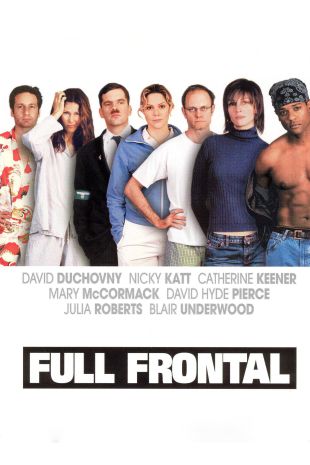
This experiment in low-budget digital video production for Oscar-winning director Steven Soderbergh is tantalizing and frustrating in equal measure. Touted as a companion piece of sorts to his breakthrough film, sex, lies and videotape (1989), the director's new work deals with a similar theme of sexual identity and a similar visual aesthetic resulting from a blend of film with video. Unfortunately, there are several significant problems. In a nod to a filmmaker that enjoys playing with structure, they are presented as a list: (1) The mixture of digital video with 35 mm film is far less seamless than in the director's first film, which possessed a stronger narrative reason for the integration of its video scenes. Here, the fictional film-within-a-film sequences are shot on traditional, "real-looking" film, while the "reality" segments are shot in fuzzy, badly lit, handheld video. It's a too-coy, precious, and obvious choice by half. One can almost hear the soft thumping of the filmmakers patting themselves on the back for their cleverness. (2) A preponderance of distracting celebrity cameos gives the film an overall patina of "Hollywood vanity project" that's tough to shake. While he doesn't always succeed, Brad Pitt is one of the most interesting and exciting actors his age working today, but not when he plays himself. (3) The story fails to connect on most emotional levels. This is a consistent, major flaw of this director to which some serious attention should really be paid. While he's not as artistically original or innovative as his champions assert, Soderbergh's level of craft is masterfully high. However, like Tim Burton (another visually distinctive modern director), Soderbergh makes cold, aloof films that too often blunt emotional impact and give short shrift to character development. No matter how interestingly mounted or beautifully shot and edited, if an audience is held at arm's length emotionally, its interest flags. Both directors make films that frequently inspire one to think, "Cool!" but rarely inspire actual feelings. (4) Full Frontal scratches at the surface of some provocative ideas -- especially a central notion that sexual roles, identity, and acting are psychologically interrelated -- but this conceptual germ is never brought to full flower. It seems to be the point, and it may well be a challenging and even life-altering for some, but it's about as clear as mud. (5) A subplot involving the romantic travails of two sisters, played by Mary McCormack and Catherine Keener, is easily the most riveting aspect of the film, while an absurd but hilarious play about Adolf Hitler being mounted by characters connected to the two women is fiendishly twisted. If the film had focused exclusively on this story, it could have been a minor classic, but instead the film's "A" story is a bloated, pretentious, and boring foray into the behind-the-scenes machinations of a major movie production, in which a viewer couldn't possibly have less invested. How many Hollywood spoofs, satires, and behind-the-scenes lampoons must flop before the movie industry gets that viewers don't care how or why they do it? Postmortem, it must be pointed out that the mark of great artists is that even their failures are interesting, and Soderbergh certainly meets such criteria. But the art of storytelling lies on a profound level, in what's being said, as well as knowing what to put in and what to take out. They are essential elements of his art that Soderbergh has not yet perfected.
